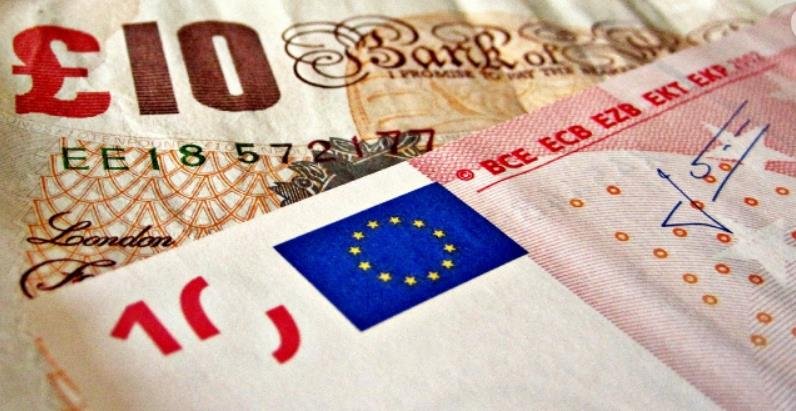The pound gained some ground against the euro on Tuesday, shrugging off disappointing UK labour market and business activity data, as a survey showed the euro zone economy suffered a sharp slowdown in October.
UK unemployment rate steady, but employment falls
According to the latest figures from the Office for National Statistics (ONS), the UK unemployment rate remained unchanged at 4.2% in the three months to August, under a new methodology that adjusts for the reduced response rate from households during the pandemic. However, the number of people in work fell by 82,000 and the number of people out of work rose by 74,000, indicating a loss of momentum in the labour market recovery.
The ONS also reported that average weekly earnings increased by 7.2% year-on-year in the three months to August, down from 8.3% in the previous period, reflecting the impact of base effects and compositional changes in the workforce. Excluding bonuses, earnings rose by 6.8%, down from 7.4%.

The data suggests that the UK economy is facing headwinds from the end of the furlough scheme, which supported millions of workers during the pandemic, and the rising cost of living due to higher inflation and energy prices.
UK business activity declines for third month in a row
A separate survey by S&P Global showed that UK business activity contracted for the third consecutive month in October, as supply chain disruptions and staff shortages weighed on output and demand. The “flash” composite purchasing managers’ index (PMI), which measures activity across the manufacturing and services sectors, fell to 49.2 from 49.3 in September, below the 50 threshold that separates expansion from contraction.
The services PMI dropped to 49.2 from 49.3, while the manufacturing PMI rose to 50.1 from 49.5, both indicating a near-stagnant performance. The survey also showed that input costs and output prices increased at slower rates, but remained elevated due to supply bottlenecks and higher wages.
The PMI data adds to the evidence that the UK economy is losing steam in the fourth quarter, raising the risk of a recession ahead of the Bank of England’s (BoE) monetary policy meeting next week.
Euro zone economy takes a surprise turn for the worse
Meanwhile, a similar survey by IHS Markit showed that the euro zone economy took a surprise turn for the worse in October, as rising COVID-19 cases and supply chain issues dampened growth prospects. The “flash” composite PMI for the 19-country bloc fell to 51.5 from 54.0 in September, well below expectations and the lowest level since February.
The services PMI dropped to 51.0 from 53.7, while the manufacturing PMI slipped to 52.0 from 54.4, both indicating a marked slowdown in activity. The survey also showed that inflationary pressures eased slightly, but remained high due to supply shortages and strong demand.
The PMI data suggests that the euro zone economy is losing momentum in the final quarter of the year, increasing the challenges for the European Central Bank (ECB) as it prepares to scale back its emergency stimulus measures.
Pound benefits from euro weakness
Despite the weak UK data, the pound managed to edge up against the euro on Tuesday, as investors focused more on the relative performance of the two economies and their central banks. Sterling was last up 0.24% against the euro at 86.90 pence and flat against the dollar at $1.2247.
The pound has been under pressure in recent weeks due to concerns over rising inflation, slowing growth and political uncertainty in Britain. However, some analysts expect that the BoE will raise interest rates sooner than expected to curb inflation, which could support sterling in the medium term.
On the other hand, the euro has been weighed down by worries over the impact of COVID-19 on economic activity and consumer confidence in the region. The ECB is expected to maintain its dovish stance and keep interest rates at record lows for longer than its peers, which could limit the upside potential for the single currency.
